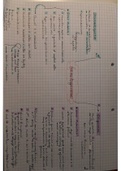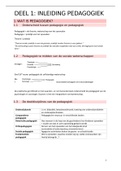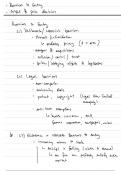Resume
Summary Entertainment Communication Notes for Exam
- Cours
- Établissement
I made these notes over the course and refined them for the exam. I studied from these and got a pretty high grade (>8) so hope these are helpful for you :)
[Montrer plus]












